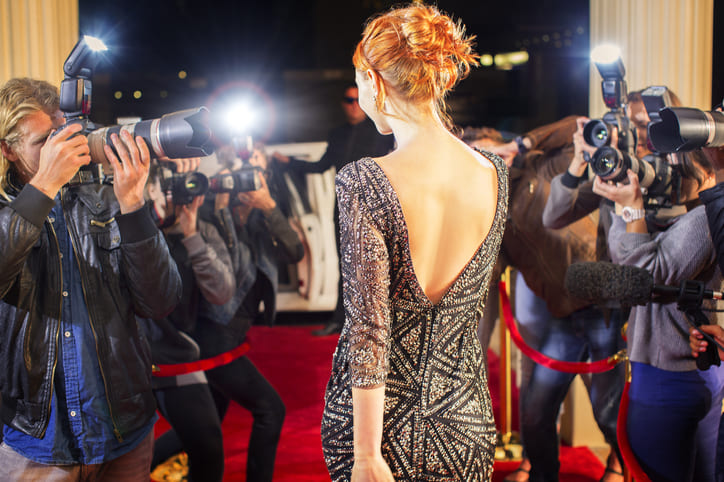Introduction
Celebrity culture has always been a powerful force in society, but in 2025 it has reached unprecedented levels of influence. No longer confined to Hollywood actors or chart-topping musicians, the definition of a “celebrity” has expanded to include social media influencers, tech entrepreneurs, esports champions, and even AI-generated personalities.
The rise of global digital platforms, short-form content, and live-streaming has blurred the lines between fame, business, and politics. Today’s celebrities are not just entertainers—they are entrepreneurs, activists, cultural icons, and global trendsetters. This article explores how celebrity culture and media influence are shaping industries, consumer behavior, and politics in 2025.
The Evolution of Celebrity Culture
In the past, celebrity culture was dominated by film, music, and sports. Today, however, social media has democratized fame. Platforms like TikTok, Instagram, YouTube, and emerging VR-based spaces allow individuals to build massive audiences without traditional media backing.
Influencers who started with niche content now rival Hollywood stars in terms of earnings and reach. A 19-year-old gamer can have the same cultural impact as a Grammy-winning artist, while a lifestyle vlogger can influence consumer purchases more than billion-dollar ad campaigns.
The power shift from traditional gatekeepers to digital platforms has given rise to a new kind of celebrity—relatable, interactive, and always connected to fans.
Social Media as the Stage for Fame
In 2025, social media is the primary stage for celebrity influence. Platforms have evolved into ecosystems where celebrities build brands, sell products, and advocate for causes.
Short-form video dominates, but live-streaming and immersive VR content are becoming equally powerful. Fans no longer just watch—they interact in real time, influencing what celebrities post and how they behave.
The direct relationship between celebrities and their audiences gives them immense power to shape culture. A viral video, a controversial tweet, or a bold fashion statement can spark global conversations overnight.
Celebrity Entrepreneurship
Celebrities are no longer satisfied with fame alone—they are building empires. In 2025, celebrity-led businesses are a booming industry, ranging from fashion lines and beauty products to tech startups and film production companies.
Rihanna’s Fenty brand paved the way, and now dozens of celebrities have followed suit, creating billion-dollar enterprises. Social media influencers are also launching direct-to-consumer brands, often outperforming traditional companies because of their loyal fan bases.
Celebrity-backed startups in technology, sustainability, and even space exploration highlight how fame and business are increasingly intertwined. Celebrities are not just selling products; they are shaping industries.
Activism and Political Influence
In 2025, celebrities are deeply engaged in activism and politics. With their vast platforms, they mobilize millions for causes ranging from climate change to social justice to digital privacy rights.
When a celebrity endorses a political candidate, advocates for a movement, or speaks out on global issues, the impact is immediate. While some argue this gives too much power to individuals outside politics, others see it as a positive shift—bringing attention to issues often ignored by governments.
However, celebrity activism comes with risks. Performative gestures or misinformation can spark backlash, raising questions about responsibility in wielding influence.
AI Celebrities and Virtual Influencers
Perhaps the most fascinating development in 2025 is the rise of AI-generated celebrities. These virtual influencers, powered by artificial intelligence, have millions of followers, brand endorsements, and even “personalities” created through machine learning.
Unlike human celebrities, AI influencers don’t age, don’t face scandals, and can be programmed to appeal to specific audiences. Brands love them for their reliability, while audiences are fascinated by the futuristic mix of reality and simulation.
Still, critics question whether AI celebrities will undermine authenticity, making human connection weaker in the age of synthetic fame.
FAQs
Who qualifies as a celebrity in 2025?
A celebrity today is not just an actor or musician but can be a YouTuber, influencer, entrepreneur, esports player, or even an AI-generated character with millions of followers.
How has social media changed celebrity influence?
Social media has made fame more interactive. Instead of being distant icons, celebrities directly engage with fans, giving them stronger cultural and commercial influence.
Are AI celebrities replacing real ones?
AI celebrities are growing in popularity, but they exist alongside human celebrities. Many audiences still value authenticity, while brands use AI for consistency and control.
Why are celebrities so active in politics now?
With massive platforms, celebrities can quickly raise awareness on issues. Many use their influence for activism, though some face criticism for performative or uninformed stances.
Will traditional Hollywood stars remain relevant?
Yes, but they share the spotlight with influencers, tech founders, and virtual personalities. The field of celebrity culture is now more diverse than ever before.
Conclusion
Celebrity culture in 2025 is bigger, bolder, and more complex than at any point in history. It is no longer limited to a few industries but spans across entertainment, politics, business, and even artificial intelligence. Celebrities wield enormous influence not only on what people buy but also on what they believe, how they vote, and what cultural trends dominate the world.
As technology continues to evolve, the power of celebrity culture will likely grow, but with it comes responsibility. Whether human or virtual, today’s celebrities shape society in profound ways, and their influence will continue to redefine the meaning of fame in the years ahead.






